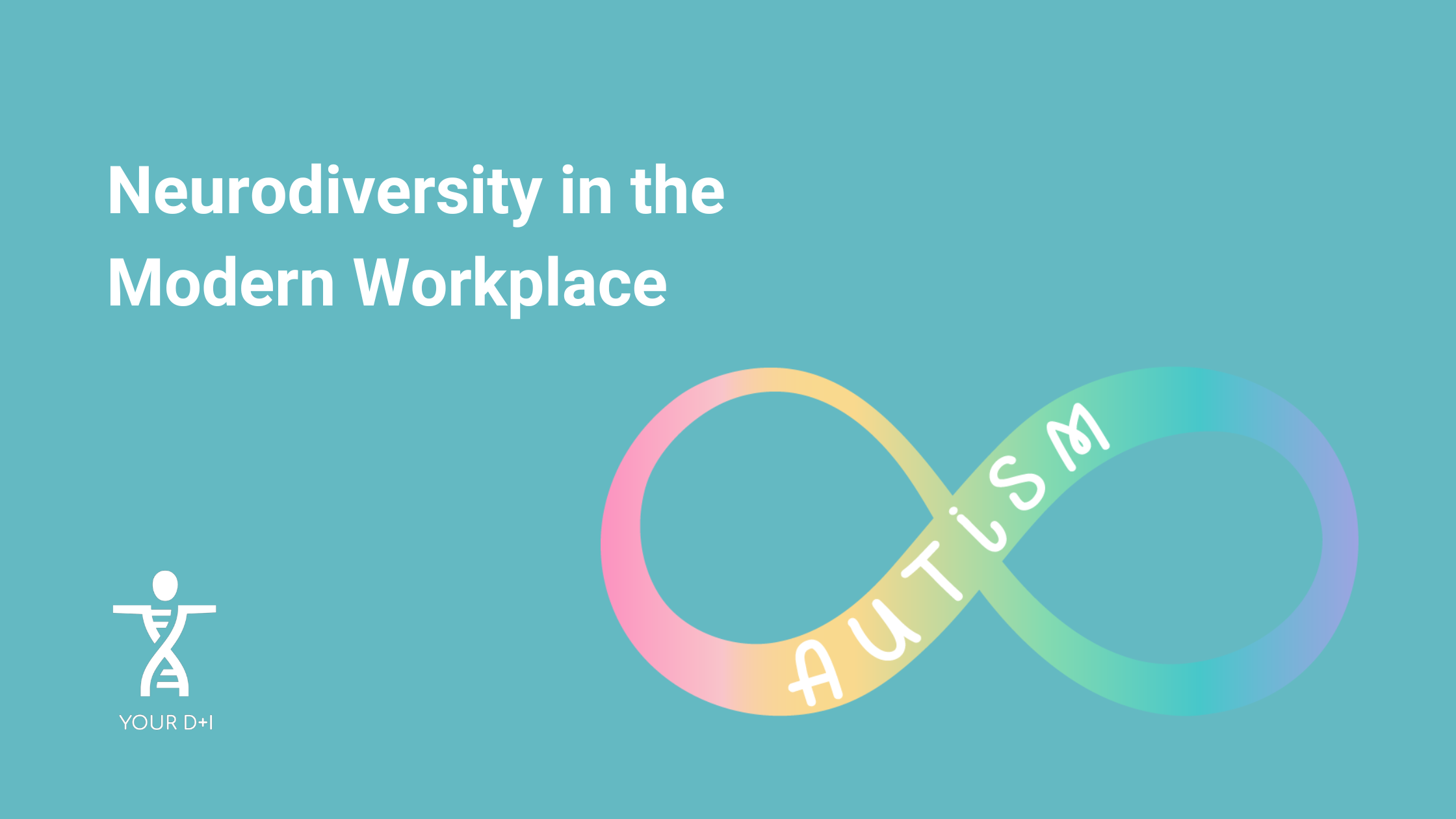In today’s rapidly evolving work landscape, the concept of neurodiversity is not just a buzzword; it’s a reality that holds the potential to reshape the way we perceive and operate within the modern workplace. As we strive for greater inclusivity and diversity, embracing neurodiversity is a crucial step toward harnessing the unique talents and perspectives of every individual. In this blog, we’ll explore the significance of neurodiversity in the modern workplace and discuss actionable steps that companies can take to create more inclusive environments.
Neurodiversity is a Reality of Today's Modern Workplace
Neurodiversity is a simple yet profound acknowledgment that every individual’s neurological makeup is distinct. From autism and ADHD to dyslexia and beyond, neurodiverse individuals contribute a tapestry of skills and perspectives that enrich the workplace. Recognising and valuing these differences can lead to enhanced collaboration, creativity, and problem-solving within teams.
Many Employers Are Starting to Embrace Neurodiversity
A promising trend is emerging as forward-thinking employers begin to recognize the untapped potential of neurodiverse talent. Companies across various industries are shifting their mindset from merely accommodating neurodivergent individuals to actively embracing their unique strengths. This shift is not just a moral imperative but also a strategic move that fosters innovation and competitiveness.
How Companies Can Be More Inclusive
Raise Awareness & Education:
Promote awareness campaigns and training programs that educate employees about neurodiversity. By fostering understanding, companies create a foundation for empathy and collaboration.
Implement Flexible Work Arrangements:
Recognise that one size doesn’t fit all. Offer flexible work schedules, remote options, and personalized accommodations that cater to the diverse needs of neurodiverse employees.
Create Sensory-Friendly Environments:
Design workspaces that consider sensory sensitivities. Simple adjustments like providing noise-cancelling headphones, calming lighting, and quiet zones can significantly improve comfort and productivity.
Offer Neurodiverse-Friendly Tools:
Invest in technology that supports neurodiverse individuals. Speech-to-text software, task management apps, and virtual reality programs can aid communication, organization, and skill development.
Establish Inclusive Hiring Practices:
Review and modify recruitment processes to ensure they are accessible to neurodiverse candidates. Emphasise skills, aptitudes, and potential over traditional qualifications.
Benefits of Having Neurodivergent Individuals in the Workplace
The advantages of neurodiversity extend beyond inclusivity. Neurodivergent individuals often possess exceptional strengths, such as heightened attention to detail, creative thinking, and problem-solving skills. These qualities can lead to breakthrough innovations and fresh perspectives that contribute to a company’s success.
Listen to our Diversitea Podcast episode with Sam Warner. Sam, the Autistic Interpreter discusses how companies can better accommodate their autistic employees.
Takeaway: The Future of Work Includes Neurodiverse People
As we peer into the future of work, one thing is abundantly clear: neurodiverse individuals are an integral part of the tapestry. Their unique contributions drive progress, spark innovation, and shape the dynamic nature of modern workplaces. By embracing neurodiversity, companies not only create a more inclusive environment but also pave the way for a future where diverse perspectives are celebrated, and everyone has the opportunity to thrive. You can find out more about neurodiversity and how to be more inclusive on Gov.uk.
Nathyn Kerchhoff is a Neuro-Inclusive Business Consultant & a part of the Your D+I Collective.

